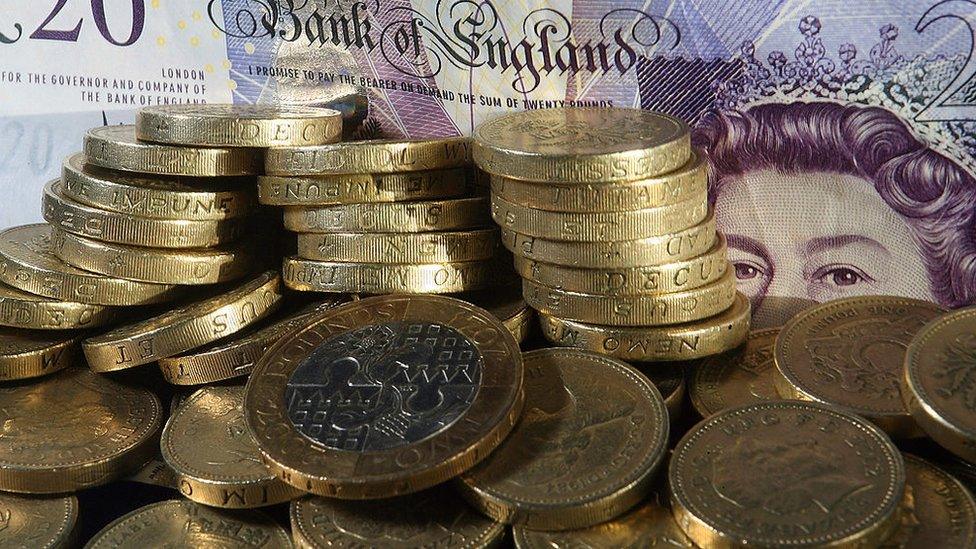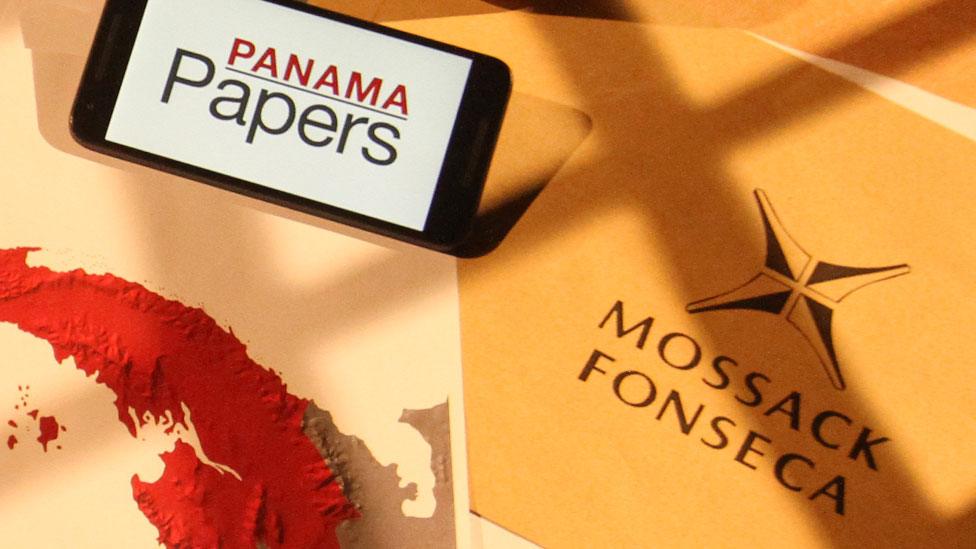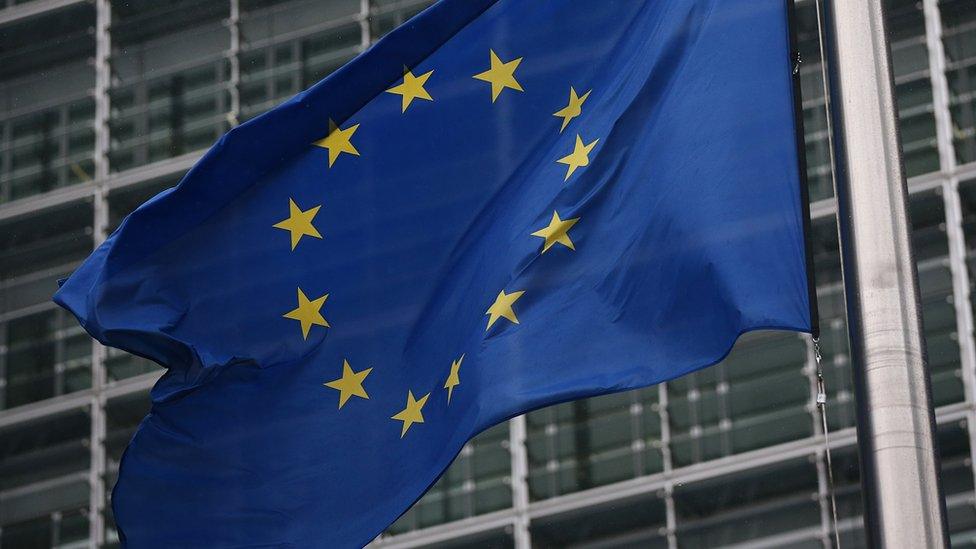Tax avoidance: Accountants face tougher penalties
- Published

Accountants or advisers who help people bend the rules to gain a tax advantage never intended face tougher fines under new penalties proposed by the Treasury.
A fine of up to 100% of the tax that was avoided - including via off-shore havens - has been suggested in the new rules, published for consultation.
Currently those who advise on tax face little risk, while their clients face penalties only if they lose in court.
The rules would "root out" tax avoidance at source, the Treasury said.
The rules in the consultation document also make it simpler to enforce penalties when avoidance schemes are defeated.
"These tough new sanctions will make would-be enablers think twice and in turn reduce the number of schemes on the market," said the Financial Secretary to the Treasury, Jane Ellison.

Analysis: Simon Gompertz, BBC personal finance correspondent
Until now HM Revenue and Customs has concentrated on tackling the individuals who don't pay their tax, while advisers and promoters of tax avoiding schemes have remained shadowy figures in the background.
The intention is that will stop once there is a penalty for the professionals involved of up to 100% of the amount avoided in a scheme.
The government isn't targeting legitimate ways of cutting tax bills, such as tax breaks for putting money in pensions or Individual Savings Accounts.
The avoidance it's trying to root out involves bending the rules to gain a tax advantage that Parliament never intended, an abuse which costs nearly £3bn a year.
Accountants see the move as a significant change, which could result in them paying fines even if the advice they give isn't illegal.

'Duty to pay'
The new rules come after the government set up a new task force to investigate allegations of tax-dodging and money laundering in light of the Panama Papers leak, which lifted the lid on how the rich and powerful use tax havens to hide their wealth.
Following the Panama Papers scandal the five largest economies in the European Union, the UK, Germany, France, Italy and Spain, agreed to share information on secret owners of businesses and trusts.
The Treasury said the move would make it harder for businesses and wealthy individuals to operate without paying correct taxes.
And speaking in July, new Prime Minister Theresa May pledged to crack down on tax avoidance, saying "tax is the price we pay for living in a civilised society".
"It doesn't matter to me whether you're Amazon, Google or Starbucks, you have a duty to put something back, you have a debt to fellow citizens and you have a responsibility to pay your taxes," she said at the time.
However, earlier this month the All-Party Parliamentary Group on Responsible Tax accused the government of undermining efforts to end tax secrecy and said it should force multinational companies such as Google to publish information on their activities in every country where they operate.
'Jumping for joy'
Richard Murphy, a chartered accountant and academic at City University, told the BBC it was unlikely that cases would come to court, but that the threat of fines would act as an "amazing deterrent" to advisers which would prevent them offering advice on tax avoidance.
He said this was partly because it could put at risk their ability to get professional indemnity insurance, which they need to continue their work.
"Lawyers and accountants will not take the risk of selling these schemes," he said. "There's a risk of a 100% fine so they'll think they can't afford to do it. Every honest accountant will be jumping for joy this morning that those who have been selling these schemes will be put out of practice."
He said that the tax system loses around £10bn per year as a result of tax avoidance, well above the £3bn a year the Treasury says is lost.
- Published4 April 2016

- Published12 April 2016

- Published14 April 2016